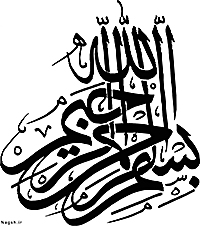Why Tabarri of Aisha?!
- Created by bineshan on 16 Aug 2011
- Categories: Occasions Miscellaneous
Why Tabarri of Aisha?!
Here on the anniversary of ‘Aayesha’s (Aisha’s) death on the 17th of Ramadan we wish to narrate a few incidents -among many- of her malice and ill will toward the AhlulBayt (PBUT) as recorded in Sunni sources.
The Sunni trusted Ahmad ibn Hanbal, the head of the Hanbali Sunni sect, in his Mosnad (Musnad), vol. 4, p. 275, h. 18444, printed in Egypt, narrated:
… One day AbuBakr heard ‘Aayeshah (Aisha) shouting and saying twice or thrice:
“By Allah, indeed I know you (the Prophet) love Ali [PBUT] more than me and my father …”
In the Majma’ al Zawaa’ed, vol. 9, p. 202 the same Hadith is narrated with the following difference:
… shouting and saying twice or thrice: “By Allah, indeed I know you (the Prophet) love Ali and Fatemah [PBUT] more than me and my father …”
A few other Sunni documents narrating this hadith are:
Sharh Moshkel al Aathaar, vol. 13, p. 334, printed in Lebanon 1987; Mo’jam al Sahaabah, vol. 3, p. 144, Salaah ibn Saalem al Mesraati, printed in Medina; …
And let us not forget verse 2 of Surah Hojaraat (49) of the Majestic Qur’an which reads:
O’ ye who have believed! Lift not up your voices above the voice of the Prophet, nor shout when speaking to him as ye shout one to another, lest your works be rendered vain, and ye perceive not.
And here is what the Amir al Mo’menin, Hadrat Ali (PBUH), has said regarding ‘Aayeshah, as reported in the Nahj-al-Balaaghah, Sermon 156, which is also recorded in the Kanz of the Sunni al-Muttaqi, VIII, 215:
“… As regards a certain woman [‘Aayeshah] {1}, she is in the grip of womanly views, and malice is boiling in her bosom like the furnace of the blacksmith. If she were called upon to deal with others as she is dealing with me she would not have done it …”
Footnote by the translator of the Nahj al Balaagheh {Ahlul Bayt Digital Islamic Library Project}:
{1}
There is no denying the fact that `A'ishah's behaviour towards Amir al-mu'minin was throughout inimical, and very often her heart's turbidity expressed itself on her face, and her hatred and dislike became quite apparent, so much so that if in connection with some affair Amir al-mu'minin's name came up a frown appeared on her forehead and she did not relish pronouncing it with her tongue. For example, when `Ubaydullah ibn `Abdillah ibn `Utbah mentioned to `Abdullah ibn `Abbas the narration by `A'ishah namely that "in his death-illness the Prophet, taking support on al-Fadl ibn `Abbas and another person, came to her (`A'ishah's) house," `Abdullah ibn `Abbas said:
"Do you know who this 'other man' was?" He said, "No." Then he said, ' "`Ali ibn Abi Talib, but she is averse to name him in a good context." ([Sunni documents:] Ahmad ibn Hanbal, al-Musnad, vol. 6, pp. 34, 228; Ibn Sa`d, at-Tabaqat al-Kabir, vol. 2, part 2, p. 29; at-Tabari, at-Tarikh, vol. 1, pp. 1800-1801; al-Baladhuri, Ansab al-ashraf, vol. 1, pp. 544-545; al-Bayhaqi, as-Sunan al-kubra, vol. 3, p. 396).
One cause for this hatred and malice was the presence of Hadrat Fatimah (p.b.u.h.) whose wholesome dignity and esteem pricked her heart like a thorn. Her jealousy towards the other wives (of the Prophet) did not allow her to let the Prophet love the daughter of his other wife to such a degree that he should stand on her approach, seat her in his own place, declare her most honourable of all the women of the world and bear such love towards her children as to call them his own sons.
All these things pained her much and naturally her feelings on such an occasion were that if she had borne children they would have been the Prophet's sons and they would have been the pivot of the Prophet's affection instead of Imam Hasan and Imam Husayn. But she was not gifted with any issue and she gratified her own desire to be a mother by adopting the surname Umm `Abdillah (mother of the slave of Allah) after her sister's son. In short all these things created the passion of hatred in her heart, as a result of which she off and on complained to the Prophet against Hadrat Fatimah but could not succeed in diverting the Prophet's attention from her.
News about this mortification and estrangement also reached the ears of Abu Bakr. That would only perturb him as he too could do nothing, except that his verbal sympathies were with his daughter. At last the Prophet left this world and the reins of Government fell into his hands. Now was the opportunity for him to avenge as best as he could and to perpetrate whatever violence he had in mind. Consequently the first step he took was that, in order to deprive Hadrat Fatimah of inheritance, he denied the principle of inheritance in the case of the prophets and held that neither do the prophets inherit nor are they inherited from, but the property left by them escheats to the state [see the Fadak Sermon of the Lady in this site: kindfather.com]. Fatimah was so much affected that she gave up speaking to him and passed away from this world with these very feelings. `A'ishah did not even take the trouble to express any sorrow at her tragic death. Thus [the Sunni] Ibn Abi'l-Hadid has written:
"When Fatimah expired, all the wives of the Prophet came to Bani Hashim in condolence except `A'ishah. She did not come and showed herself sick and words from her reached `Ali which displayed her joy." (Sharh Nahj al-balaghah, vol. 9, p. 198).
As long as she bore so much malice against Hadrat Fatimah, how could Fatimah's spouse be spared similar enmity and malice. Particularly when such events also occurred which worked like a fan and roused her feeling of hatred, such as the incident of "Ifk" when Amir al-mu'minin said to the Prophet: "She is no better than the buckles of your shoe, leave her and divorce her away." On hearing this `A'ishah must have felt miserable in her bed, and must have developed the severest feeling of hatred against him. There were also moments when distinction was conferred on Amir al-mu'minin in preference to Abu Bakr. For instance, in connection with the dispatch of the Qur'anic verses on Bara'ah, the Prophet removed Abu Bakr from the job, recalled him and assigned it to Amir al-mu'minin saying that he had been commanded by Allah to take it himself or send it through a member of his family. Similarly the Prophet closed all the doors opening into the mosque including that of Abu Bakr but allowed the door of Amir al-mu'minin's house to continue to open thereinto.
`A'ishah could not relish Amir al-mu'minin's distinction over her father, and whenever there was any occasion for such distinction she did her best to undo it. When in his last days the Prophet ordered the contingent under Usamah ibn Zayd to march, and ordered Abu Bakr and `Umar also to go under his command, they received a message from the wives of the Prophet [‘Aayeshah and Hafzah] that his condition was serious and therefore the contingent should come back instead of proceeding further. This was because their far-reaching sight had realized that the only purpose in getting Medina vacated by the muhajirun and the ansar could be that after the death of the Prophet no one should stand in Amir al-mu'minin's way and that he should get the caliphate without any trouble. On receipt of this message the contingent under Usamah came back. When the Prophet learnt this he again ordered Usamah to march with the contingent and even said, "Allah may curse him who keeps away from the contingent," whereupon they again set off, but they were again called back till the Prophet's illness assumed serious proportions, but Usamah's contingent did not go out as it did not want to. After this Abu Bakr was sent word through Bilal that he should deputise the Prophet in leading the prayers in order to pave the way for his Caliphateship. Accordingly, keeping this in view he was first shown as the Prophet's caliph (deputy) in prayers and eventually was accepted as his caliph for all purposes. Thereafter matters were so contrived that Amir al-mu'minin could not get the Caliphate[in spite Ghadir; see the Sermon of Ghadir in this site]. However, after the reign of the third caliph circumstances took such a turn that people were obliged to swear allegiance at Amir al-mu'minin's hand. On this occasion `A'ishah was present in Mecca. When she learnt about Amir al-mu'minin's caliphate her eyes began emitting flames, and rage and anger perturbed her mind, and her hatred for Amir al-mu'minin assumed such seriousness that she rose against him on the excuse of avenging blood of the same man (`Uthman) whom she had herself proclaimed fit to be killed, and openly declared war as a result of which so much bloodshed occurred that the whole land of Basrah was smeared with the blood of those killed, and the door of disunity was opened for good. (Sharh, [the Sunni] Ibn Abi'l-Hadid, vol. 9, pp. 190-200).
*****
Aisha, who had increased hardship for the Prophet and the Ahl Ul-Bayt (Salaam be upon them all) on a daily basis, as indicated above from Sunni sources was happy after she was told of the martyrdom of Fatemah (Salaam be upon her). She displayed the same contentment upon hearing about the martyrdom of Hadrat Ali (Salaam be upon him) against whom she created a militia to fight him in the Battle of al Jamal (the Camel). It comes as no surprise that she would therefore also not grant Imam Hassan (Salaam be upon him) any peace, regardless of whether he was alive or during his funeral, during which Aisha tried to prevent his burial and ordered her companions and followers to throw arrows at his corpse:
In the Sunni Maqaatel al Taalebeen p. 74 in the biography of Imam Hasan (PBUH) is stated that while Imam Hasan (PBUH) was being buried , ‘Aayeshah riding on a mule asked the aid of the bani Omayyah and the bani Marwaan to cause a riot against the Imam; she said: “By Allah, till there is hair on my head, I will not let you bury him (Imam Hasan) here (next to the Prophet).” and the martyred body of the Prophet’s grandson was struck by at least seventy arrows!!!
Other Sunni and Shi’ah documents of the above narration: al Tabaqaat, vol. 8, p. 175; summary of Taarikh of Dameshq, ibn ‘Asaaker; Ansaab al Ashraaf, vol. 3, p. 61; Majma’ al Bahrain, al Tarihi, vol. 1, p. 572; Taarikh Ya’qoobi, vol. 2, p. 225; Osool al Kaafi, vol. 2, Ketaab al Hojjah, p. 69, H. 1; al Eezaah, ibn Shaazaan, p. 262; …
La’n of Allah, all His angels and all His people be upon ‘Aayeshah
AAMEEN
In the name of God

Ebooks
- MUHAMMAD AND THE AHLULBAYT (SBUT), THE PROMISE OF Bible
- The Najran Pact,
Mobaahelah (Mubahilah)
- Ghadir Declaration of the Truth from creation to eternity
- Truth Behind Christian Commemorations
- Hijab A Divine Ordinance, ordained by all Prophets of Allah (SBUT)
- Dajjaal … Antichrist (NEW)
- Truth behind the claim of hom os exuality and ... (NEW)
- Mourning... (NEW)
- What the Bible Says About Muhammad (Peace Be Upon Him) the Prophet of Islam (NEW)
- A description of the collection (Mawsu’ah-Encyclopedia) Kalimah al-Imam al-Mahdi al-Hujjat ibn al-Hassan al-‘Askari (‘Alayhima al-Salaam) (NEW)
How to search
1: click here.
2: type your "Search keywords".
3: If you are searching a specific article set "Keyword settings" to "Exact phrase".
4: In "Filter search by type", only check the "Pages".
5: Click on "Search now"
